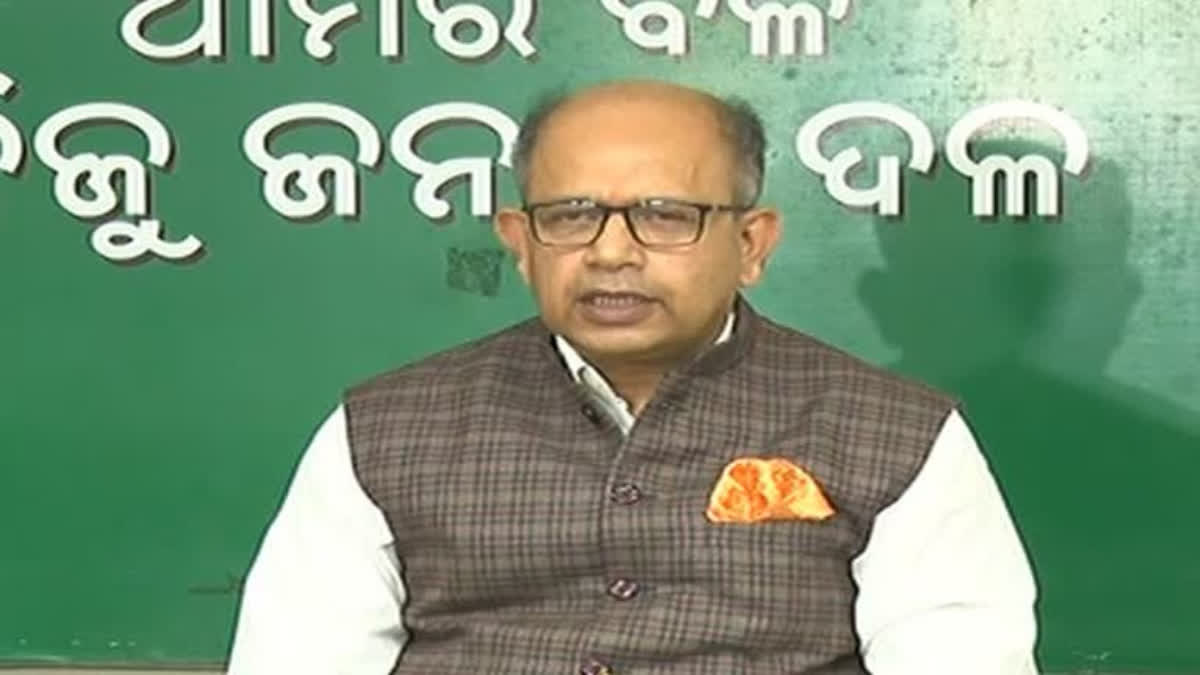New Delhi: With India proposing a One Future Alliance (OFA) in the New Delhi Declaration of the G20 to help low and middle-income countries adopt Digital Public Infrastructure (DPI), Biju Janata Dal (BJD) Rajya Sabha MP Amar Patnaik has said that it is important for institutions of the Global South to become proactive for achieving the UN’s Sustainable Development Goals (SDGs) through the use of DPI.
“India has immensely benefited from the adoption of DPI and has positioned itself to accelerate towards the achievement of SDGs,” Patnaik said while addressing a panel discussion on ‘Reimagining India’s Digital Public Infrastructure Globally for Attaining the SDGs’ organised in virtual mode by the CUTS International think tank.
“India’s DPIs such as Aadhaar, UPI (Unified Payment Interface) and Ayushman Bharat Digital Mission have played a significant role in accelerating the growth towards SDGs,” he stated. Patnaik said that people do not need to have knowledge about DPI to use the applications in their daily lives.
Also read:India leapfrogged 40 yrs of development with DPI: G20 Sherpa Amitabh Kant
“People who are getting benefits through DPI like the farmers have no idea about digital infrastructure,” he said. “People in India are adopting DPI without even knowing about the technology behind it.” He also lauded the New Delhi Declaration at the G20 Summit earlier this month wherein India plans to build and maintain a Global Digital Public Infrastructure Repository (GDPIR). According to the New Delhi Declaration, the GDPIR, a virtual repository of DPI, should be “voluntarily shared by G20 members and beyond”.
On the issue of taking DPIs to the Global South and other countries, he highlighted that it is critical that other countries understand the policy push required before the adoption of DPIs. “To take this idea to the rest of the world, it has to be inter-operable,” Patnaik said. “It is a public good that should be available to every global citizen. South-South institutions can be galvanised to make a bigger difference in fostering DPIs’ global adoption in achieving the SDGs. Institutional inertia in the South-South landscape has to improve.”
It may be mentioned that the African Union, which forms the majority of the Global South, was included as a permanent member of the G20 during the New Delhi Summit at India’s initiative. Patnaik said that the SDGs encompass poverty eradication, promotion of good health and well-being, assurance of quality education, as well as the facilitation of decent work and economic growth and reduction of inequalities. During the panel discussion that followed, the panelists while highlighting the role of governance in DPI, discussed the need for digital infrastructure to be neutral and accommodative of the local requirements.
The panellists included Lorrayne Porciuncula, co-founder and executive director of Datasphere Initiative, Osama Manzar, founder and director of Digital Empowerment Foundation, Parminder Jeet Singh, Digital Society Researcher, and Hanani Hlomani of Research ICT Africa (RIA).
The panellist underscored design principles such as interoperability, adaptability, inclusivity, and maintaining the distinction between infrastructure and service to transform the global journey of DPIs. The hallmark of digital infrastructure is that it is invisible to the public eye. Prior to implementing DPI, a comprehensive framework is essential to guarantee data security and privacy. These solutions should prioritise the end user and undergo rigorous testing across borders, promoting cross-border cooperation between nations.
Navneet Sharma, Director General of the CUTS Institute of Regulation and Competition, who moderated the panel discussion, pointed out that only 12 per cent of the SDG targets are on track. “DPI has emerged as a critical enabler of accelerating the SDGs,” Sharma said. “India’s DPI has been endorsed by many countries.”
